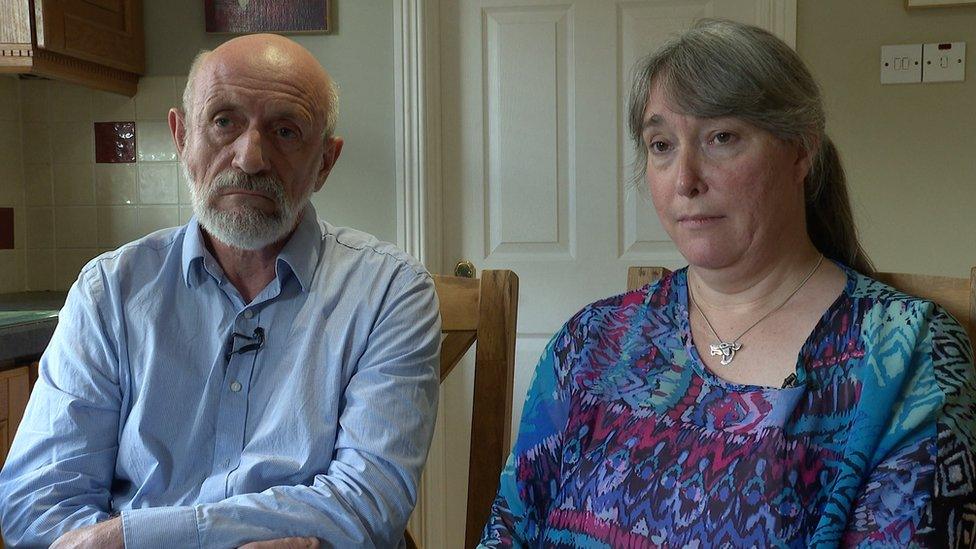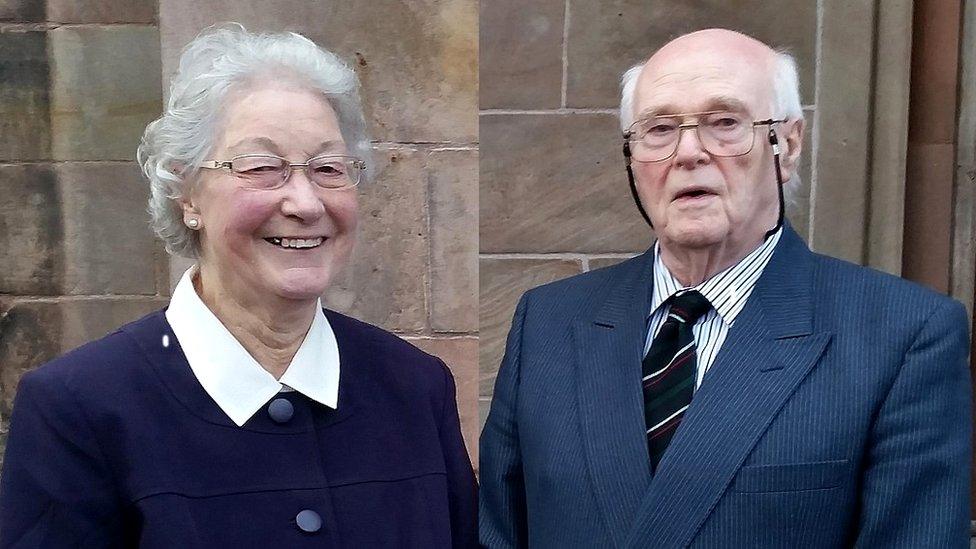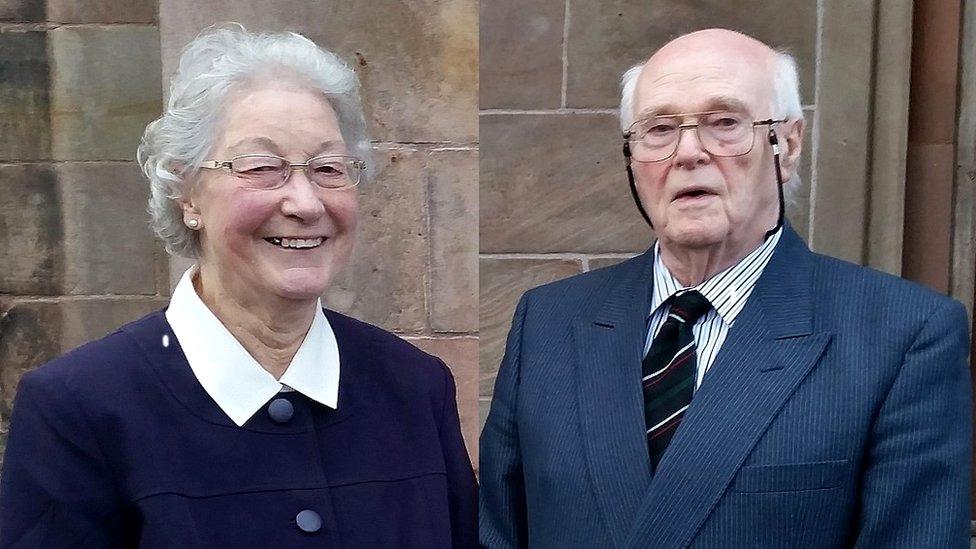Cawdery killings: Family 'discriminated against' as victims
- Published
Michael and Marjorie Cawdery, both 83, died in a "frenzied" knife attack
The family of an elderly couple killed in County Armagh by a man with severe mental health issues say they feel "discriminated against" as victims.
Michael and Marjorie Cawdery, both 83, died in a "frenzied" knife attack by Thomas McEntee in their home in 2017.
The Northern Ireland Victims' Commissioner only deals with cases related to the Troubles.
The Cawdreys' daughter says it is unfair victims are treated differently in NI to other parts of the UK.
In England and Wales, the victims' commissioner has oversight of all victims of crime.
Wendy Little said: "It's right and proper that there are resources being spent on a victims' commissioner for the Troubles but what about other types of victims?
"In the aftermath of everything, our world was turned upside down and I wasn't able to function properly - we didn't know who to turn to.
"It's the same old situation again - why are we being treated differently in Northern Ireland?
"Victims of all crime need compassion and support for situations that come totally out of the blue."
The Northern Ireland Victims' Commissioner Judith Thompson was re-appointed for a further 12 months last Friday.
Her office works under specific legislation that defines a victim as someone who has been physically or psychologically injured or bereaved as a result of a "conflict-related incident" in Northern Ireland.
One of its main duties is to provide advice to the government on matters affecting victims and survivors of the Troubles in Northern Ireland and their loved ones.
A voice for victims
The commissioner for victims in England and Wales was set up in 2010; it is independent of government and advocates for victims of all types of crime and their families.
Last year, it produced a report and lobbied the UK government on the entitlements of victims of mentally ill offenders.

McEntee was sentenced to a minimum of 10 years in prison for killing the couple
An estimated 120 people a year across the UK are killed by someone who is mentally ill.
A government-funded study by Manchester University found that almost 10% of those convicted of homicide in Northern Ireland between 2006 and 2014 had been in contact with mental health services in the 12 months prior to the offence, external.
Michael and Marjorie Cawdery's daughter and son-in-law, Wendy and Charles Little, say they were traumatised by the killing - they witnessed the aftermath of the attack at the Cawderys' Portadown home.
'A psychological assault'
Mr Little said: "We are victims, we effectively suffered a psychological assault that day and our lives have changed beyond recognition and there is only so much the police and victims' charities can do.
"A victims' commissioner is meant to provide victims with a voice and, at the minute, victims of non-Troubles crimes don't have one."
He added: "Troubles' victims should be represented but so should other victims - it's discrimination, there is no other word for it."
The Department of Justice said the appointment of a victims' commissioner would be a matter for any returning Northern Ireland Executive to consider.

Charles and Wendy Little are calling for a commissioner that can also deal with non-Troubles related crime
It said the needs of victims were central to the department's work and that it provided funding to a number of charities that worked in that area, including Victim Support NI.
Victim Support NI offers information and advice immediately after a crime occurs and can offer assistance to victims claiming compensation.
'Champion for victims of crime'
Geraldine Hanna, the CEO of Victim Support NI, said she is supportive of the call to establish a commissioner for all victims of crime.
She said: "We believe that all victims of crime should have a strong, influential, independent voice to ensure that every victim gets the right support at the right time.
"A victims' commissioner for Northern Ireland could fulfil a vital dual role, both acting as champion for victims of crime and providing an independent, advisory and challenge function to government."
Between August 2018 and July 2019 there has been a 4% increase in overall crimes reported to the police in Northern Ireland.
In particular, there was a marked increase in crime involving violence.
Crimes such as homicide, death or serious injury caused by dangerous driving and harassment increased by 7% on the previous year.
Mr Little believes the statistics underline the need for victims of non-Troubles related crime to be fully represented.
"The danger for victims of ordinary crime here is that once the crime has been committed and the court case is over, the victims still have a life sentence and they're forgotten over and over again."
- Published17 July 2019

- Published28 June 2018

- Published22 June 2018
